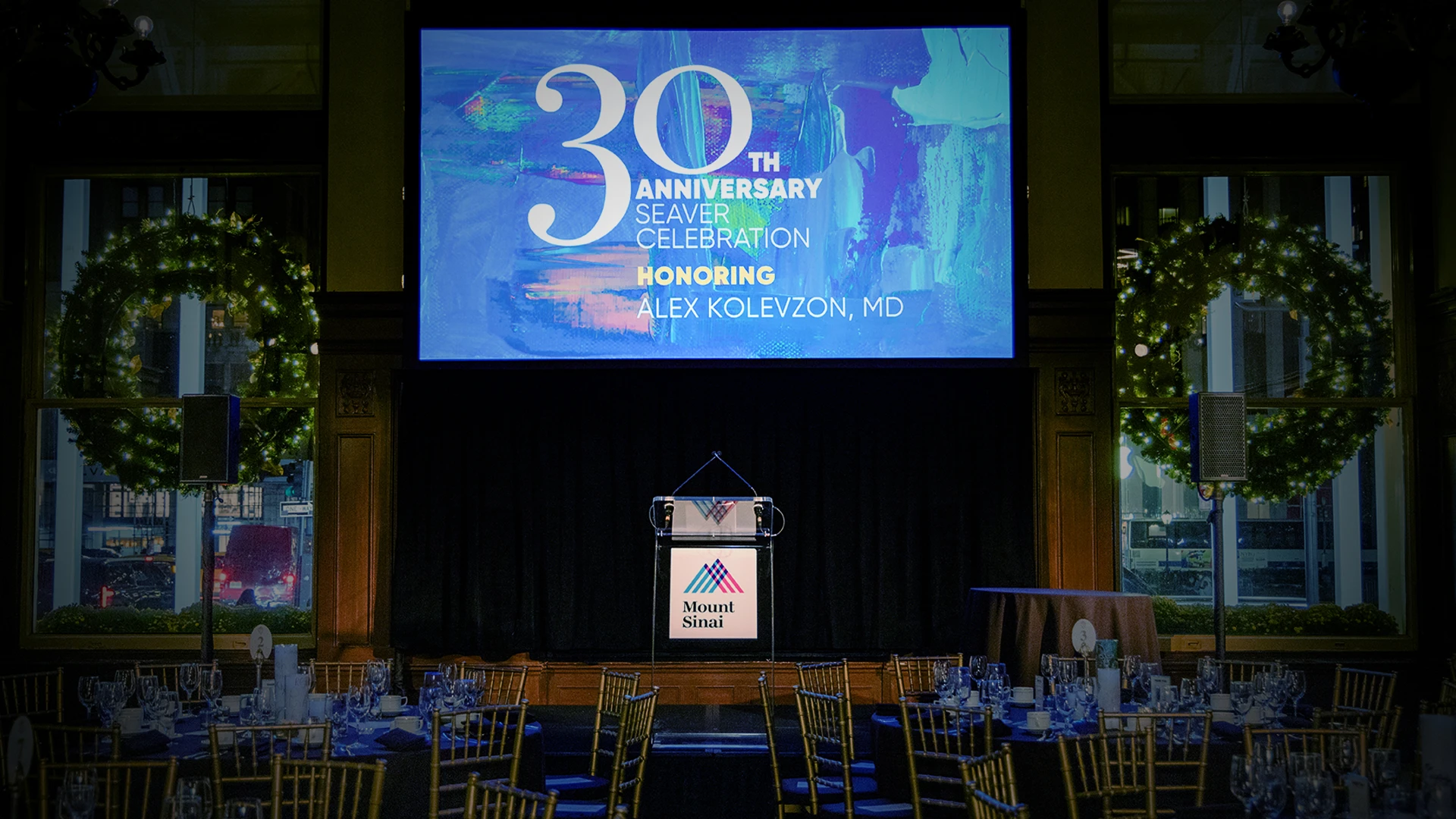In November 2023, the Seaver Autism Center for Research and Treatment at the Icahn School of Medicine at Mount Sinai celebrated its 30th anniversary with a gala to commemorate the Center’s rich history and continuing impact on the field. Founded in 1993 with support from the Beatrice and Samuel A. Seaver Foundation, the Seaver Autism Center takes a progressive, genetics-first approach to studying autism spectrum disorder and rare disorders associated with autism.
“The generous commitment from the Seaver Foundation has made the last 30 years of autism research possible,” says René Kahn, MD, PhD, Chair of the Department of Psychiatry, and Esther and Joseph Klingenstein Professor. “Their continuous philanthropic funding has put us in a unique position to develop groundbreaking research studies and the most personalized care for our patients for 30 years. We are very grateful for this partnership and what we are able to achieve together.”
The Seaver Center’s long history is rooted in multidisciplinary collaboration and a focus on genetics. Thirty years ago, the creation of the Center was spearheaded by Kenneth Davis, MD, then Chair of the Department of Psychiatry, and who eventually became CEO of Mount Sinai Health System. Dr. Davis saw a need for dedicated autism research within the health system, but, at the time, genetics was just an emerging idea in autism, notes Dr. Kahn.

Joseph D. Buxbaum, PhD (right), oversees the Seaver Autism Center for Research and Treatment, which studies the disorder with a focus on genetics.
Few research programs share the Center’s depth and breadth of autism research, says Joseph D. Buxbaum, PhD, Professor of Psychiatry, Neuroscience, and Genetics and Genomic Sciences at Icahn Mount Sinai, and Director of the Seaver Autism Center since 2008. The Center is unusual in its emphasis on high-risk genes associated with forms of autism that cause significant developmental, social, and communication impairment—a study population that is more challenging, but also desperately in need of improved treatments. “Many places have amazing animal models or stem cell programs or clinical research programs. What is unique about our Center is we do all of this and focus on drug development,” Dr. Buxbaum says.
Over the years, powered by generous philanthropy, community support, annual multimillion-dollar gifts from the Seaver Foundation, and extensive support from the National Institutes of Health (NIH), the Center has propelled the field’s understanding of the biology of autism. This includes the discovery that most of the risk for autism is genetic, and much of that is from de novo mutations—changes that arise spontaneously, as opposed to inherited mutations that are passed from parent to child.
In 2010, Dr. Buxbaum co-founded the Autism Sequencing Consortium, which involves more than 50 institutions that share genetic samples from people with autism. The collaboration, which he continues to co-lead, has reaped huge benefits for the field.
Autism is not a single entity, and it is estimated there are probably 1,000 genes in the human genome that, if mutated, can contribute to autism risk, Dr. Buxbaum says. In the last few years, the consortium has identified about a quarter of those mutations, and that number continues to grow. As new technologies become available, perhaps up to 75 percent of autism-related genes may be identified in the near future, he adds.
Genetic Advances in Autism Research
These genetic advances are accelerating the field in multiple ways. Researchers can now design animal models and cell cultures that exhibit specific mutations associated with autism, for instance. “We can begin to probe the biological and developmental changes associated with different kinds of autism,” Dr. Buxbaum explains.
Genetic findings also allow researchers to design more targeted clinical trials of potential therapies. With so many genetic pathways to autism, it’s likely that several different underlying biological processes are at play. A drug that works for one subset of people may be ineffective—or even harmful—in others. “By starting with genetics, researchers can design trials based on subsets of individuals who share the same or similar mutations and biology,” says Alexander Kolevzon, MD, Director of Child and Adolescent Psychiatry for the Mount Sinai Health System, who was honored at the anniversary gala for serving as the Seaver Autism Center’s clinical director for 16 years.
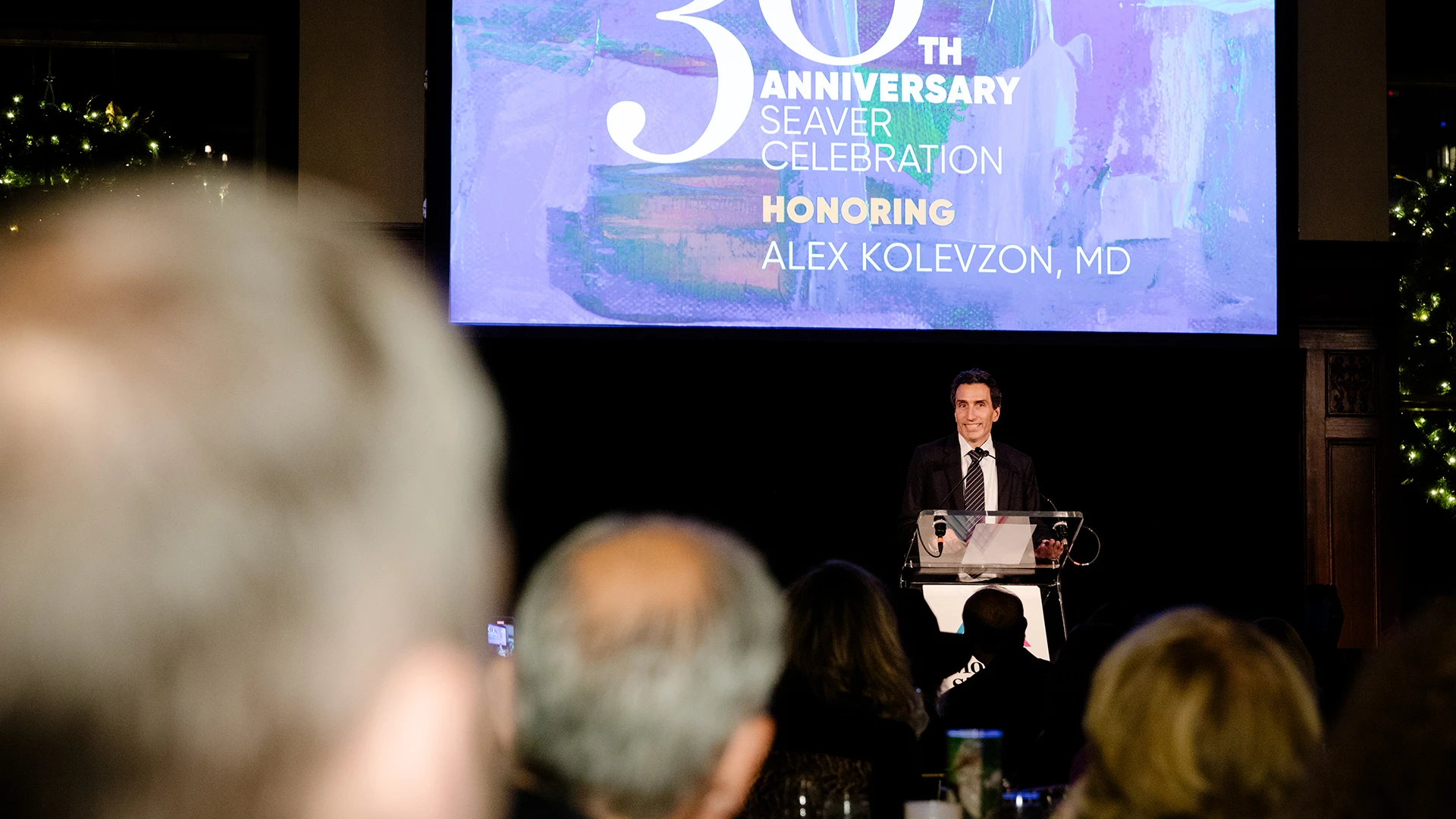
Alexander Kolevzon, MD, was honored at the Seaver Autism Center’s 30th anniversary gala for serving as its clinical director for 16 years.

Dr. Buxbaum believes that genetics will continue to improve the field’s understanding of autism spectrum disorders, especially as genetic testing of children becomes more prevalent, and new technologies are on the horizon.
Dr. Kolevzon leads the Center’s experimental therapeutics program. The program evaluates new treatments ranging from small pilot studies to large multicenter trials for pharmacological therapies seeking approval from the U.S. Food and Drug Administration. Those efforts are opening doors to promising new therapies for genetic forms of autism and related neurodevelopmental conditions, including Phelan-McDermid syndrome, ADNP syndrome, and Rett syndrome. “The Seaver Center is leading the way in translational research, from genetic discovery to model systems to clinical trials in patients,” Dr. Kolevzon says.
The Seaver Center also applies the same rigor to studies of behavioral interventions, aiming to optimize interventions that will work as well in communities as they do in controlled research settings. They are also developing better outcome measures so researchers can more effectively evaluate the benefits of new treatments, even in patients who may be nonverbal and unable to complete surveys or describe their own symptoms. “Many of the measures that we have historically used to try to capture change in various symptoms may not be as relevant to some individuals with these single-gene forms of autism that we have identified,” Dr. Kolevzon explains.
While research for new kinds of treatment is ongoing, genetic findings are already informing the treatment of patients with autism who receive services at the Seaver Autism Center. “We’ve evolved our treatment approach to focus less on the categorical diagnosis of autism, and more on the underlying biology based on what we know about the function of the genes involved,” Dr. Kolevzon says. Given the importance of early intervention, he urges psychiatrists and other clinicians to suggest genetic testing for patients with autism. “The American College of Medical Genetics recommends every child with autism gets genetic testing, yet only a tiny fraction of children receive it,” he says. “It’s important for psychiatrists to become more fluent in performing genetic testing and understanding its implications.”
As genetics continues to shape the field of autism treatment, Drs. Kolevzon and Buxbaum are optimistic that the next decade will deliver exciting advances in treating this complex set of disorders. “I think within the next five years, we’ll see successful examples of new treatments coming out of these genetic discoveries,” Dr. Buxbaum says.
Featured
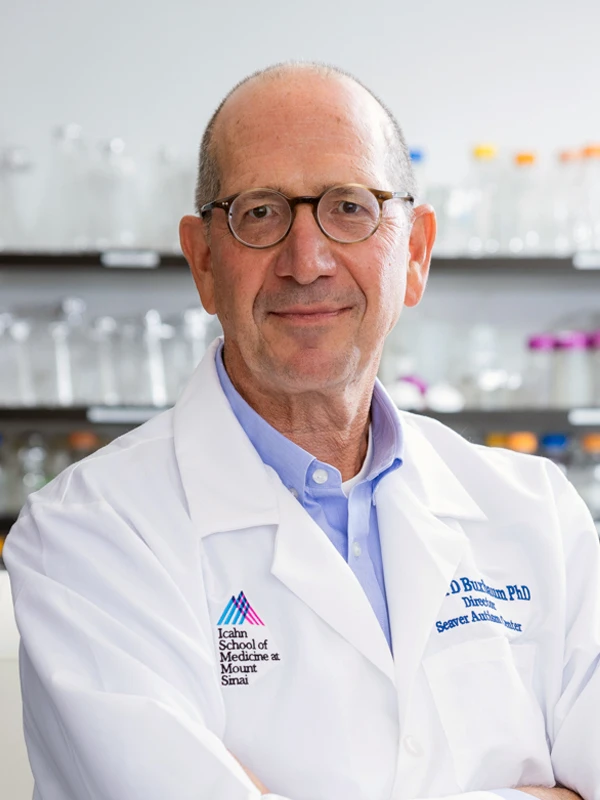
Joseph D. Buxbaum, PhD
Director of the Seaver Autism Center for Research and Treatment; Professor of Psychiatry, Neuroscience, and Genetics and Genomic Sciences
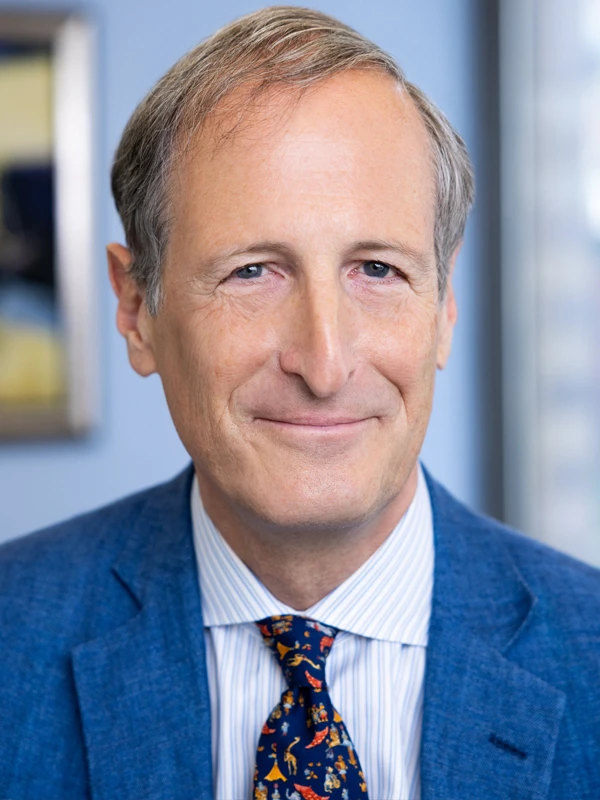
René S. Kahn, MD, PhD
Esther and Joseph Klingenstein Professor and Chair, Department of Psychiatry and Behavioral Health
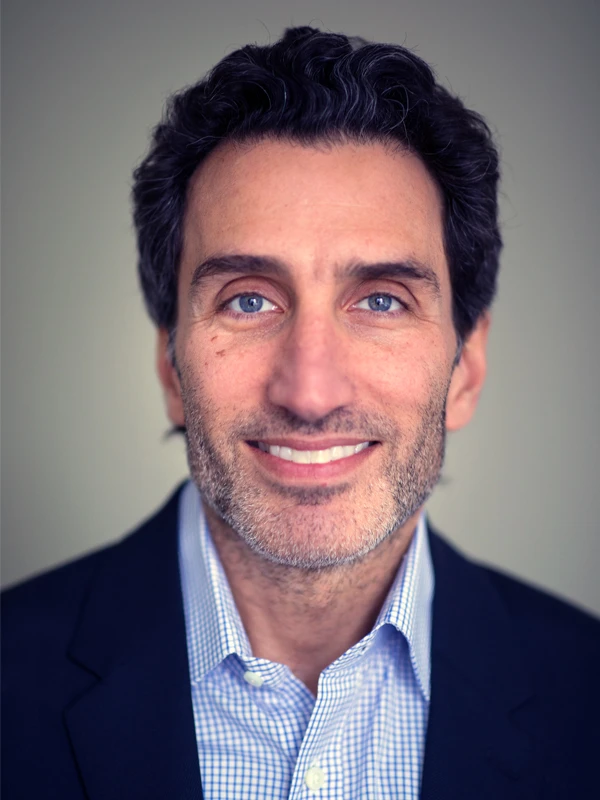
Alexander Kolevzon, MD
Director of Child and Adolescent Psychiatry, Clinical Director of the Seaver Autism Center for Research and Treatment
